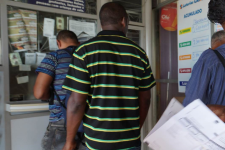Entre cuidado e exploração. Quando a dívida entra nas relações de família e vizinhança num bairro periférico

The proliferation of consumer credit during Brazil’s boom years was embedded in visions of national progress for all – including the very poor. This so-called “financial inclusion” has come at a high cost. Based on fieldwork in Salvador, Bahia (between 2012–2019), this article provides insights into the ways debt has transformed the conditions of urban poverty and social relations.
In poor neighborhoods, families get caught up in vicious debt circles as they now struggle with a ‘double burden of debt’: debt in the local informal economy as well as the financialized economy. The ethnography shows that debt is often left unsettled, and that among women in a peripheral neighbourhood of Salvador, dreams and debt become intimately intertwined, as they depend on credit to provide for the family on a daily basis, to deal with unexpected events, and to “build a life” (construir uma vida).
It is argued that in this context of stark poverty, debt fosters interdependencies that accentuate unequal and unstable relationships among neighbours and within families, relationships that are characterized by both care and exploitation.
DIIS Experts

